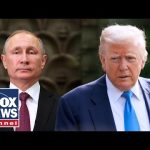President Trump’s recent address to the United Nations was a defining moment for critics of open-border ideology, laying bare the consequences of what he called the “failed experiment of open borders.” With unmistakable candor, Trump argued that the unchecked flow of migrants is destabilizing nations worldwide and threatening the fabric of national identity and security. He didn’t merely criticize the current handling of the crisis; he demanded that world leaders take decisive action to reverse course, warning that continued inaction would only compound the crisis for generations to come.
Trump’s speech was particularly pointed in its critique of Western Europe, where leaders in the United Kingdom and France have presided over rapid demographic shifts that have alarmed many of their citizens. He chastised them for acknowledging the social strain created by mass migration while lacking the political will to enforce meaningful reforms. Invoking his first term’s policy achievements, Trump argued that the United States had shown that it was possible to restore order and preserve national cohesion—but only through unapologetic enforcement of the law and a firm defense of the border.
The heart of Trump’s message went well beyond policy mechanics. He called on all countries to rekindle pride in their unique cultural heritage, stressing that a nation’s strength derives from its people’s shared history and traditions. He argued that maintaining secure borders is not an act of exclusion, but one of self-preservation—a necessary step for nations that want to survive in an era of upheaval. His appeal struck a chord with those who believe that the relentless push for globalization has eroded the sovereignty and cultural unity that once defined Western nations.
Commentators across the spectrum noted that Trump’s speech articulated fears that many ordinary citizens feel about the impact of uncontrolled migration. In both Europe and America, public frustration has mounted as politicians fail to address communities’ real economic and cultural anxieties. Trump’s stance has been echoed by voters and analysts who argue that virtues like national pride and historical memory are being sacrificed on the altar of global bureaucracy and political correctness—leaving citizens feeling like strangers in their own homes.
As the dust settles on Trump’s assertive speech, one fact remains clear: the debate over migration is not just about economics or security—it’s about identity and the right of nations to shape their own destinies. Trump’s call for a renewed commitment to national sovereignty and unity may spark controversy among elites, but it resonates deeply with people who sense that, without strong borders and leadership, they risk losing the values that make their countries unique. The world will be watching to see if other leaders answer Trump’s call for a shift in how migration is managed—before the damage becomes irreversible.




